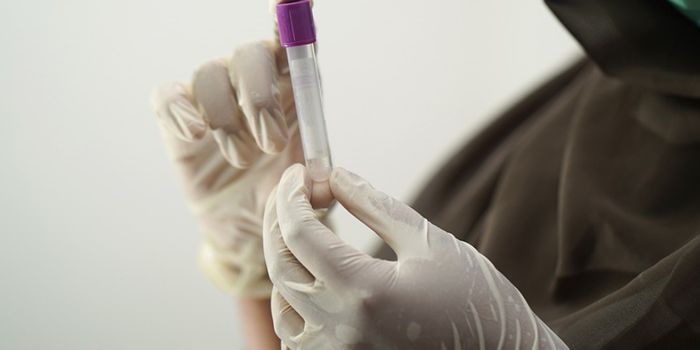DNA Targeting Drug Shows Efficacy for Colorectal Cancer
Colorectal cancer (also called bowel cancer) typically develops in the large bowel (colon) or rectum. Recent studies have shown significant rises in the number of colorectal cancer cases, particularly those in young adults. As we discussed earlier, the recently released estimated cancer statistics for 2024 predict colorectal cancer as the leading cause of mortality in men under 50 and the second-leading cause of mortality in women. Additionally, experts predict over 150,000 new cases of colorectal cancers this year.
To combat these troubling figures, ongoing research focused on the prevention and treatment of colorectal cancers remains a high priority and urgent need. This includes data recently published in Science Advances which demonstrates pre-clinical efficacy for a new treatment approach.
The study involves genetic material known as microbial or mislocalized DNA. This type of DNA arrises from cells that become damaged, thus no longer providing the correct genetic instructions. Damaged DNA can elicit various reactions in the body, including activating the immune response. Damaged DNA can therefore influence how the body responds to diseases, including colorectal cancer.
Our bodies also contain proteins that repair damaged DNA, preventing potential negative effects and outcome of mislocalized DNA. The study implicates one such DNA repair protein, Ku70, to have a protective effect against colorectal cancer development.
When examining tissue from cancer patients for expression of Ku70, the researchers found significantly longer survival in patients with either colon or rectal cancers if they had high levels of Ku70.
The researchers also used mouse models of colorectal cancer to demonstrate that the absence of Ku70 increased cancer susceptibility. Mice with reduced levels of Ku70 protein developed fewer tumors in the colon tissue.
In addition to establishing Ku70 as a potential protein to target in the development of novel treatment regimens, this study demonstrates feasibility of using Ku70 as a biomarker to predict prognosis and outcomes in patients with colorectal cancers. With further validation, Ku70 could even become a signal to identify patients at high-risk of developing colorectal cancer and assist in formulating strategies to inform and encourage early diagnosis programs.
Sources: CA, Science Advances
-
MAY 07, 2024Is It Anti-RNP or Anti-Sm/RNP?
-
MAY 08, 2024Expand your Multiomic Capabilities with RNAscope™
- See More
-
APR 30, 2024Immuno-Oncology Virtual Event Series 2024
-
MAY 07, 20243rd International Biosecurity Virtual Symposium
-
MAY 23, 2024For the Love of Digital PCR 2024
- See More


















































